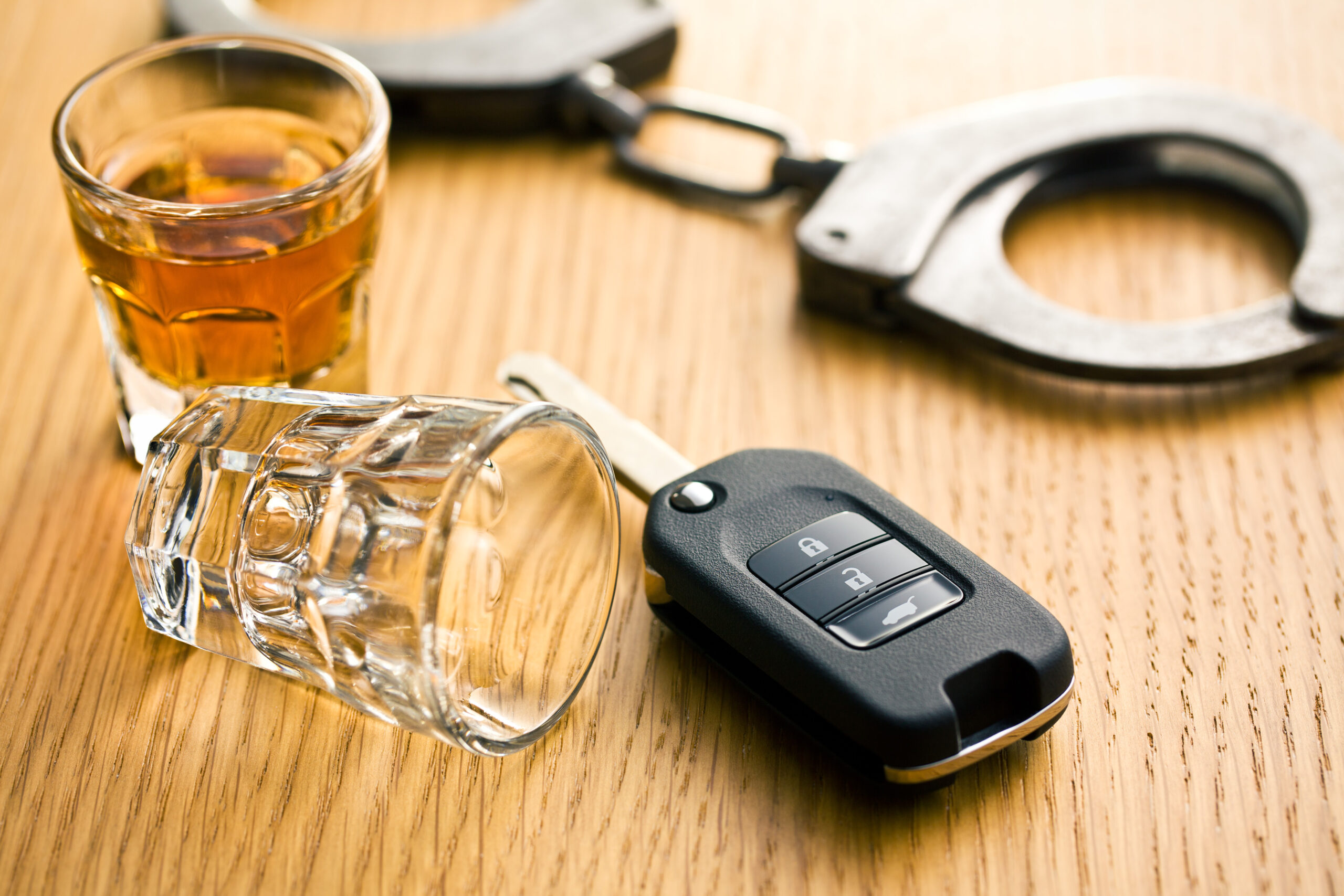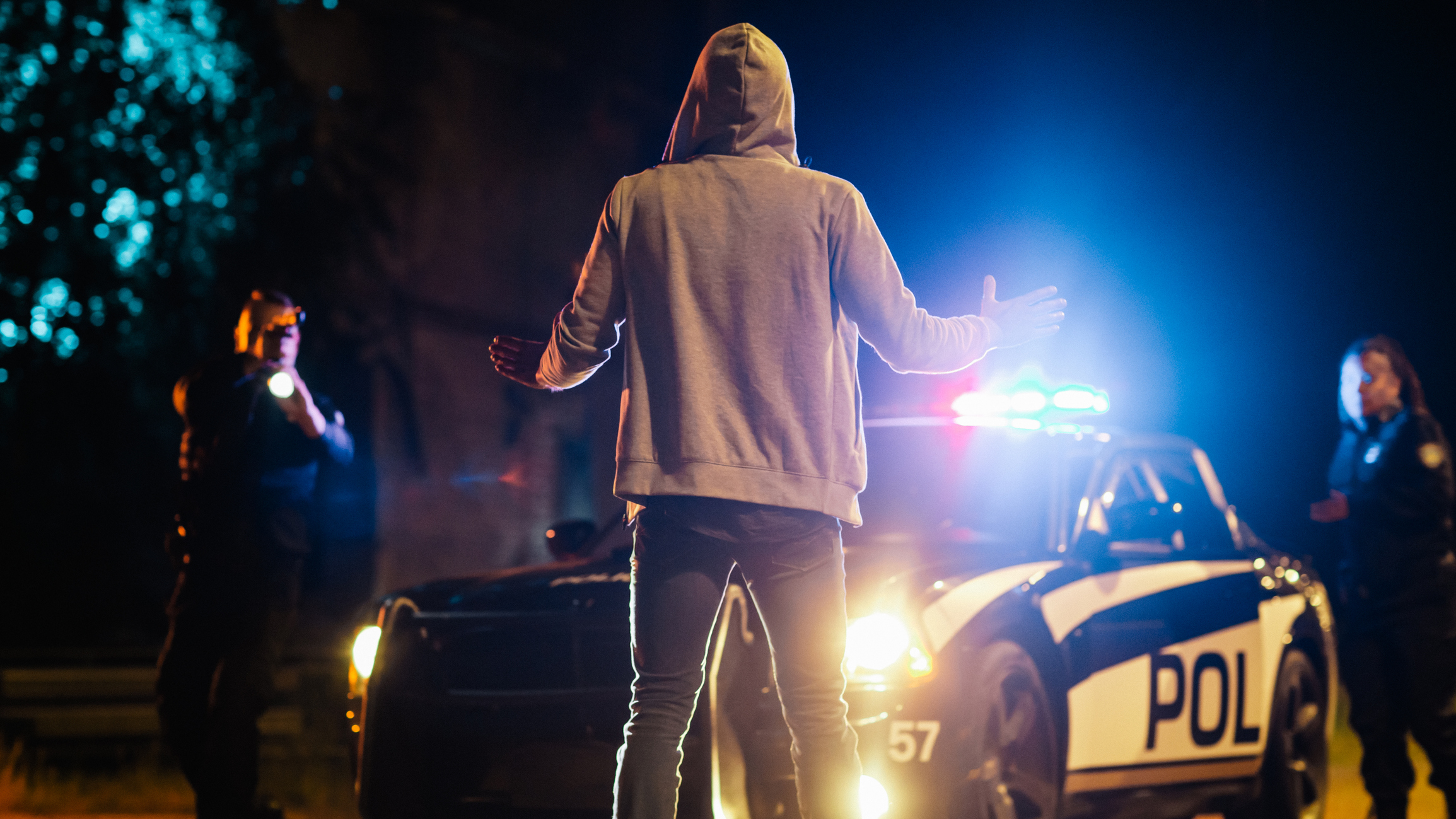Did you know that you can be stopped and arrested for a DUI even if you have significantly less than 0.08 blood alcohol content in your system? Did you know that you could be charged with DUI even if you only consumed legal prescription drugs? Did you know that even if you consume a small amount of alcohol combined with a small amount of either legal or illegal medication or narcotics, you can be charged, prosecuted, and convicted of a DUI? Did you know that lying or minimizing your drinking to an officer could actually hurt your criminal case?
Sarah, many people believe they can only be charged with a DUI if the government can prove their blood alcohol content was 0.08 or higher. Is that accurate?
Well, that’s one way the government can try to convict you of a DUI. The other way is by proving that, one, you were driving a vehicle, and two, at the time of driving, you were impaired by drugs or alcohol to the point where you were no longer able to drive the vehicle with the care and caution of a sober driver. You can also be charged with a DUI even if the government never saw you drive.
Sarah, in your experience, have you ever had a case where a person was found intoxicated behind the wheel of a car with the engine running, no evidence the person actually drove the vehicle, no traffic stop by the police—and yet you still had a client in court facing a DUI charge?
Yes. In that situation, even though no one saw them actually moving the vehicle, the government would try to prove they were driving by using circumstantial evidence. They would look at the fact that the vehicle was running, the keys were in the vehicle, the person was sitting in the driver’s seat, it was registered to that individual, and that person appeared to be intoxicated.
In our many years of experience, we’ve identified five basic components to virtually every DUI case. To help you educate yourself and be ready for that critical encounter with a police officer on suspicion of drunk driving or impaired driving, we are going to break it down, demystify it for you, and conclude this video with a very helpful list of tips and tricks we’ve developed over the years to help you stay out of trouble.
One of the first elements of every DUI case we’ve encountered in our careers is the driving pattern or reason for a traffic stop. A police officer on the side of the road, or driving nearby, may observe a driver engaging in something that draws their attention. It might be because the driver is violating traffic laws, swerving in and out of lanes, driving too slowly or too fast for the posted speed limit, or driving in another manner that indicates something might be affecting their ability to navigate the road safely. Perhaps they’re driving with headlights on during the day or off during the night—things that will alert a police officer and could result in a traffic stop and potential legal trouble.
When a police officer pulls you over for a traffic violation, anything that officer discovers is fair game. If they detect evidence of another crime, such as a DUI, they can then investigate you for that offense.
A typical DUI investigation usually follows this general sequence. It begins with an officer observing a traffic violation or noticing poor driving patterns. Next, the officer observes your demeanor and behavior during the traffic stop. They’ll assess whether you appear intoxicated by looking for “objective signs of intoxication,” such as slurred speech, red and watery eyes, an unsteady gait, or the odor of alcohol. Each of these indicators can be problematic, and in the many DUI cases we’ve handled, we’ve seen evidence of sober people exhibiting symptoms of intoxication without actually being under the influence.
The officer will observe your demeanor and how you respond to instructions. As soon as you roll down your window and begin speaking, they’ll check for the odor of alcohol or marijuana. If they suspect you might be under the influence of drugs, they may examine your pupil size to see if they appear dilated or constricted. They’ll also listen for any slurred speech. If they ask you to step out of the car, they’ll assess whether you appear steady on your feet. These observations—called objective symptoms of intoxication—are used in almost every DUI investigation to justify further steps.
The officer will also look at your ability to comply with their requests. For example, if they ask for your license and registration and you fumble around in the glove box, they may interpret this as a sign of intoxication. Similarly, if they ask you to turn on your headlights and you accidentally activate the windshield wipers, they might argue that this is evidence of impairment. However, your defense attorney can argue in court that each time you accurately follow instructions, it’s evidence that you are not intoxicated. It’s crucial to listen carefully to what officers ask you and respond appropriately, as any mistake could be misinterpreted, misconstrued, or misused as evidence against you.
During any traffic stop, especially one involving a DUI investigation, it’s essential not to overshare or volunteer unnecessary information. If an officer suspects you may be driving under the influence, they will likely ask a series of questions, such as whether you’ve been drinking, what you drank, when you last had a drink, when you last slept, or if you’re taking any prescription medications. You are not legally required to answer these questions. Moreover, if you provide false answers—particularly if you downplay the timing or amount of your drinking—you could inadvertently damage or even destroy your defense.
People often think they can talk their way out of a DUI by downplaying their drinking. They might say they had two drinks when they actually had five. Sarah, let’s say, for example, I had a Manhattan cocktail, and earlier—maybe several hours ago—I had one or two Coronas. What’s the harm in telling the officer, “Hey officer, I just had two beers”? After all, I did have the two Coronas; I’m just leaving out the fact that I also had a Manhattan.
When there’s a chemical breath or blood test, the District Attorney will likely call an expert to testify about how many drinks a person would have needed to reach a certain blood alcohol level. If you minimize or lie about the amount of drinks you had or the timing of those drinks, it can hurt your credibility. Additionally, there’s something called the “rising blood alcohol” defense, which occurs in about 5-10% of DUI cases. Rising blood alcohol happens when someone drinks a large amount of alcohol quickly, and the body hasn’t had time to fully absorb and metabolize it. In these situations, your blood alcohol level can continue to rise during your interaction with the police. This means that by the time an officer conducts a breathalyzer test or takes you to a hospital—45 minutes to an hour, or even longer after you’ve stopped driving—the blood alcohol result may be much higher than your actual level at the time you were driving.
So, don’t lie to the police about your drinking pattern, the amount you drank, or the timing of your last drink. If you don’t have anything truthful or helpful to say, remember it’s always best to remain silent, hire an attorney later, and trust your attorney to handle the situation.
Field Sobriety Tests
After an officer orders you out of the vehicle, they’ll likely ask you to perform field sobriety tests. Just like their questions about how much you’ve been drinking, you are not legally required to participate in any of these tests. Field sobriety tests, although they seem like standard DUI investigation tools, are actually highly subjective. In our experience, almost every time our clients are asked to perform these tests, their performance is not fully captured on camera. That means we can’t always see what the officers are asking our clients to do; we only hear the instructions and responses. This lack of visibility leaves room for the officer to interpret—and sometimes misinterpret—what happened.
Officers may sometimes test for things that don’t have any proven scientific relevance to whether a person can safely operate a vehicle. Let’s take one example: the horizontal gaze nystagmus test. Sarah, can you explain what that test actually involves?
With the horizontal gaze nystagmus test, the officer holds a finger or pen in front of your face and asks you to follow it with your eyes only. They’re observing how smoothly your eyes track their finger, and when it’s all the way to one side, they look for something called “nystagmus,” or involuntary jerking of the eyes, which is often associated with alcohol use. Some people can have nystagmus without consuming alcohol, but this is what the officer is looking for—an involuntary physical reaction. They aren’t testing whether you can follow the finger; they’re actually checking for that involuntary jerking or “bounce” of the eyeball when it reaches a certain angle. This jerking, ideally, should occur before reaching a 45-degree angle if alcohol is involved.
The Horizontal Gaze Nystagmus Test and Police Subjectivity
Sarah, in your experience handling DUI cases, how often do you see police officers using a protractor? I’ve never seen one, yet officers routinely state in reports that they observed “nystagmus” prior to a 45-degree angle, suggesting impairment. These field sobriety tests need to be performed very precisely to be valid indicators of alcohol impairment. Often, however, officers rush through these tests, which makes the results unreliable.
In fact, a well-known study on highly trained California Highway Patrol officers showed that even experienced officers frequently misinterpret these tests. Because field sobriety tests are so subjective and because you’re not legally required to take them, it’s often best to refuse—especially if there’s no camera recording the interaction. Our trained experts can review recorded tests for accuracy, but without such footage, subjective interpretations can unfairly work against you.
Preliminary Alcohol Screening vs. Chemical Breath Tests
After field sobriety tests, officers may ask you to blow into a preliminary alcohol screening (PAS) device. This is a roadside test used to detect the presence of alcohol, but you’re not required to take it. Many people mistakenly believe they must submit to any breath test, but in California, only the evidentiary chemical test—which follows a specific legal admonition—is mandatory. If an officer does not read this admonition before a test, it’s a PAS test, which is optional. Refusing this test is not a legal refusal.
DUI Charges and DMV Administrative Actions
When arrested for DUI, you face both a criminal charge and an administrative action by the DMV, which focuses on your driving privilege. Refusing a required chemical test results in a one-year license suspension with no eligibility for a restricted license. However, you have 10 days from the arrest to request a DMV hearing, which can prevent the suspension from taking effect until after the hearing. This delay can give you time to gather evidence, consult a lawyer, and build your defense.
Tips for a DUI Stop:
- Avoid reasons for a lawful stop: Any evidence from a lawful stop can be used against you.
- Don’t downplay your drinking: Inaccurate information could harm your defense.
- Know your rights on chemical tests: You’re required to take a chemical test if the officer reads the DMV admonition.
- Refuse field sobriety tests: They are subjective, and refusal can limit evidence against you.
- Know the PAS test is optional: If no admonition is read, you’re not legally required to take this roadside test.
Special Circumstances Impacting DUIs
DUI charges carry greater consequences for individuals under 21, commercial drivers, or those with professional licenses or prior DUIs. These circumstances can lead to harsher penalties and affect your ability to drive and your professional standing.
For any DUI, especially with these added risks, consult an experienced DUI defense attorney to ensure the best outcome.





